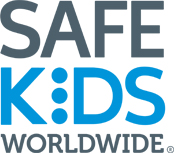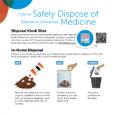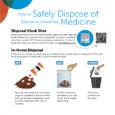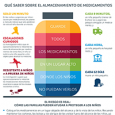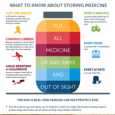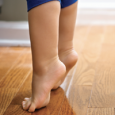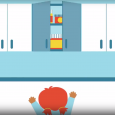You are here
Medication Safety for Little Kids
Medication Safety for Little Kids
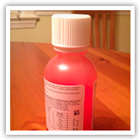 Vitamins and medications can be very tempting for small fingers and mouths and even taste like candy or food. Here are a few steps to help keep your kids stay safe around medicine.
Vitamins and medications can be very tempting for small fingers and mouths and even taste like candy or food. Here are a few steps to help keep your kids stay safe around medicine.
Top Tips about Medication Safety
- Put all medicines up and away and out of sight including your own. Make sure that all medicines and vitamins are stored out of reach and out of sight of children. In 3 out of 4 emergency room visits for medicine poisoning, the child got into medicine belonging to a parent or grandparent.
- Even if you are tempted to keep it handy, put medicine out of reach after every use. When you need to give another dose in just a few hours, it may be tempting to keep medicine close at hand. Accidents can happen fast. It only takes a few seconds for children to get into medicine that could make them very sick. Put medicine up and away after every use. And if you need a reminder, set an alarm on your watch or cell phone, or write yourself a note.
- Talk to your kids about medication safety. Even if their medication tastes good, don’t compare it to candy to encourage kids to take it.
- Close your medicine caps tightly after every use. Buy medicines in child-resistant packages when you can. But remember, child-resistant does not mean child-proof, and some children will still be able to get into medicine given enough time and persistence.
- Educate grandparents. It is estimated that in 38 percent of ER visits involving a medicine poisoning, the medicine belonged to a grandparent. Talk to grandparents about being extra mindful with medicine or pillboxes when children are around.
- Consider places where kids get into medicine. Kids get into medication in all sorts of places, like in purses and nightstands. In 60% of emergency room visits for medicine poisoning, the medicine was left within reach of a child, such as in a purse, on a counter or dresser, or on the ground. Place purses and bags in high locations, and avoid leaving medicines on a nightstand or dresser.
- Be alert to visitors’ medicine. Guests in your home may not be thinking about the medicine they brought with them in their belongings. In 49% of emergency room visits for medicine poisoning, the medicine a child got into belonged to a relative, such as a grandparent, aunt or uncle. When you have guests in your home, offer to put purses, bags and coats out of reach of children to protect their property from a curious child.
- Use the dosing device that comes with the medicine. Proper dosing is important, particularly for young children. Kitchen spoons aren't all the same, and a teaspoon and tablespoon used for cooking won't measure the same amount as the dosing device.
